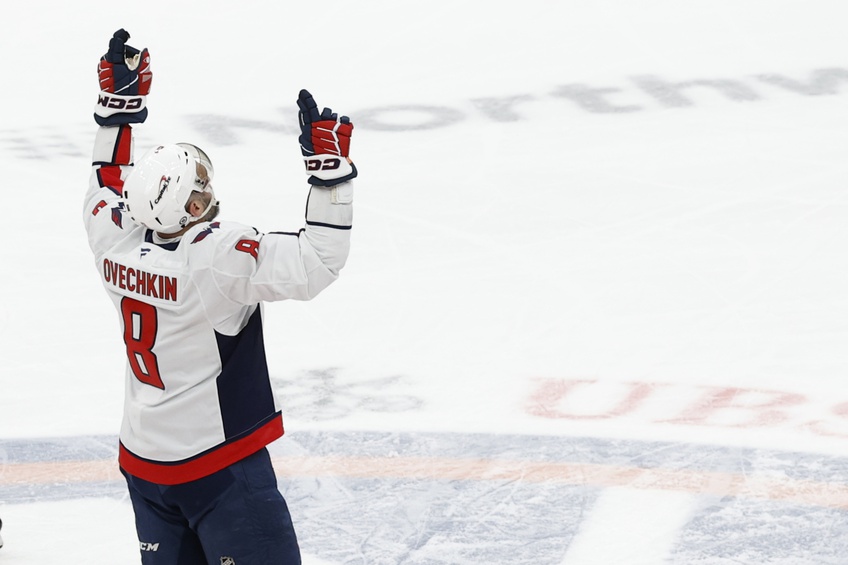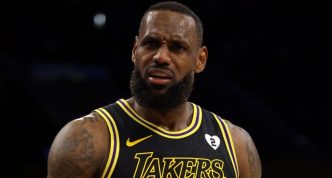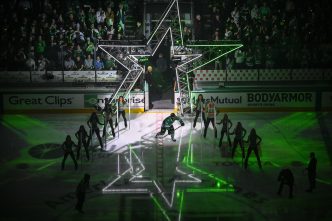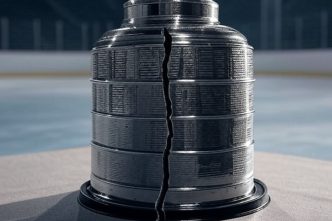Alex Ovechkin’s ascent to NHL glory and his remarkable achievement of becoming the league’s all-time goals leader is a moment to celebrate in the world of hockey. With 895 goals to his name and the distinct possibility of surpassing 900—perhaps even reaching towards that elusive 950 mark—the Russian sniper continues to defy expectations. Given his musings about retirement post-2025, it’s conceivable that his career could conclude with a number around 940, setting a daunting standard for future players.
What adds layers to this narrative is just how much higher that total could’ve been. Ovechkin, born on September 17, 1985, missed out on the NHL until he was 20, a circumstance that cost him at least 40 goals during his teenage years. Furthermore, the lockouts in the 2012-13 season and the 2020 pandemic robbed him of 74 games, which might have added an additional 45 goals to his impressive tally. All of this considered, it’s feasible that Ovechkin could have cruised past the 1,000-goal milestone—a threshold that could have rendered his record virtually unassailable.
As Ovechkin approached and eventually claimed the goals record, some critiques framed him as a one-dimensional player. But let’s unpack that notion. Ovechkin’s arsenal extends far beyond his lethal shot from the left circle, a significant factor in him eclipsing Gretzky’s mark. He boasts a powerful blend of speed and physicality; at 6-foot-3 and 240 pounds, he skates with a grace reminiscent of Pavel Bure yet delivers hits like a power forward. That unique combination has redefined expectations of athleticism in hockey.
Can we really label a player who stands third in all-time hits as one-dimensional? Ovechkin’s accolades speak volumes: three Hart Trophies, a Conn Smythe Trophy as playoff MVP, and a Stanley Cup victory as captain of the Washington Capitals. His average ice time of 20:37 per game over two decades is an achievement that places him among the elite minute leaders in NHL history—all while maintaining his status as a scoring threat.
Longevity is another testament to his game. Barring injury, next season, he’ll become one of only 24 players to reach 1,500 games played, joining a storied list that features legends like Wayne Gretzky and Mario Lemieux. Ovechkin’s ability to remain a scoring powerhouse even after experiencing seasons marked by uncertainty is nothing short of astonishing. When we adjust statistics for the era—acknowledging that Ovechkin has performed in a landscape of 5.7 goals per game against Gretzky’s 7.0—we find that Ovechkin may boast nearly 250 era-adjusted goals above Gretzky, pushing him tantalizingly close to the millennium mark.
However, placing Ovechkin among the pantheon of hockey greats presents its own set of challenges. For over three decades, the conversation around hockey’s elite has largely centered on legendary figures like Gretzky, Howe, Orr, and Lemieux. Each of these players not only redefined their respective eras but also embodied the diverse greatness that the sport celebrates, highlighting skill, creativity, scoring ability, and tenacity.
Despite holding the record for most goals, Ovechkin’s unique path keeps him slightly distanced from that elite quartet. Factors like his play on the wing, his power-play scoring prowess, a single Stanley Cup to his name, and a lack of an all-encompassing skill set often factor into discussions about his legacy. Yet, the conversation is evolving. As Ovechkin eclipses milestones and inverts expectations, it’s worth considering whether he should climb higher in these rankings, perhaps even overtaking Jaromir Jagr as the best winger and best non-Canadian player of all time, despite Jagr’s impressive points total.
Ovechkin’s rivalry with Sidney Crosby, who is two years younger and has shown no signs of slowing down, adds another layer to this engaging narrative. There’s a realistic chance Crosby could join the exclusive 2,000-point club, setting up an intriguing duel for legacy. Meanwhile, an emerging wave of talent, including stars like Connor McDavid and Nathan MacKinnon, raises the stakes for this discussion about hockey’s future legends.
In light of Ovechkin’s incredible achievements, the prospect of creating a “new Mount Rushmore” of hockey emerges—one that includes the likes of him, Crosby, and their contemporaries as they navigate a landscape shaped by modern challenges and unprecedented skill levels.
Regardless of where you place Ovechkin among the all-time greats, what’s unquestionable is that his career is nothing short of extraordinary. He is a player whose legacy might just secure a record that future stars will struggle to break, forever altering our understanding of what it means to be a hockey great.








